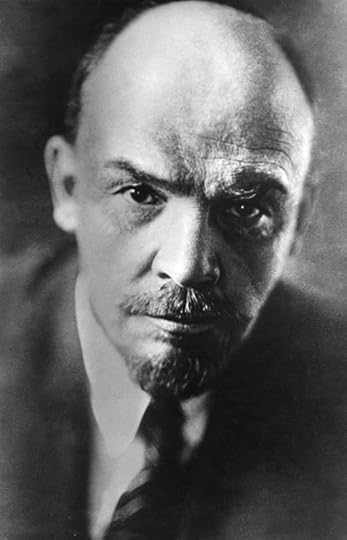Vladimir Lenin: The Shaping of a Revolutionary (Part II)

Lenin in July 1920. Photo by Pavel Zhukov.
Though never publicly lauded by Lenin, Pyotr Tkachev is seen
as the philosophical bridge between the Chernyshevksy-inspired Populists and
the Bolsheviks.
Tkachev was a radical journalist and agitator who served more
than one stint in prison for his activities. He described himself as a Jacobin
and briefly collaborated with Nachaev from 1868-1869. Although he’s one of the
few colleagues who apparently didn’t fall under Nachaev’s sinister spell, he
also never repudiated Nachaev even after he fell out of favor when his killing
of I.I. Ivanov was exposed.
Tkachev was one of the early Russian Marxists. He believed in historical determinism with
economics as the prime factor, but strikingly he departed from Marxism
regarding how revolution in Russia could realistically be achieved. He advocated the need for a secret
“conspiratorial organization that would seize power by means of a coup d’etat”
(Szamuely 1974).
Unlike Bakhunin and other anarchists, Tkachev didn’t believe
that a spontaneous peasant rebellion would happen. Nor did he believe – like some other
Populists – that “an isolated coup” was plausible.
Tkachev laid out three central ideas necessary for achieving
a revolution in Russia: 1) it would have
to be established through an intellectually and morally developed revolutionary
minority since the masses didn’t understand their own interests and wouldn’t be
able to advance them – if they could, he argued, it would represent gradual
evolution and would preclude the need for revolution, 2) the revolution was to
be carried out as soon as possible as conditions would become less favorable
the more entrenched the capitalist system became in Russia, and 3) a
revolutionary party was needed to execute the revolution.
That party would engage in organizing a unified and
disciplined entity to carry out the revolution, the dissemination of propaganda
using its own journal as the primary means, and incitement of the revolution
itself (Szamuely 1974).
Tkachev spelled out his blueprint for revolution in a
pamphlet called “The Tasks of Revolutionary Propaganda in Russia.” He engaged in a lengthy public and hostile
debate with Pyotr Lavrov who argued that revolution could only legitimately
come from the masses themselves and emphasis must therefore be placed on educating
the masses toward this goal. Lavrov’s
approach would be largely discredited after his Going to the People campaign
fizzled in the mid-1870’s.
Tkachev reiterated to Lavrov and other critics, including
Europeans such as Friedrich Engels, that since Russia had no well-developed industrial
proletariat or representative bodies and no consistently free press, there was
no way to win over the masses to a revolution in the foreseeable future. In Russia’s conditions, in which all the
power was vested in the state with no meaningful independent classes or institutions,
the state was also vulnerable in terms of the universal resentment it elicited
by its oppression and control of all.
This, Tkachev argued, made the Russian state ripe for a “tight-knit,
highly disciplined conspiratorial organization” to facilitate its overthrow
(Szamuely 1974).
Once power was seized by the revolutionary minority, it would rule as a dictatorship over the course of time needed to implement economic, social and legal changes required by a socialist system (Szamuely 1974). Some of Lenin’s writings would echo and build upon Tkachev’s ideas and tactics, even using titles for his pieces that were strikingly similar to Tkachev’s (Szamuely 1974).
To be continued



